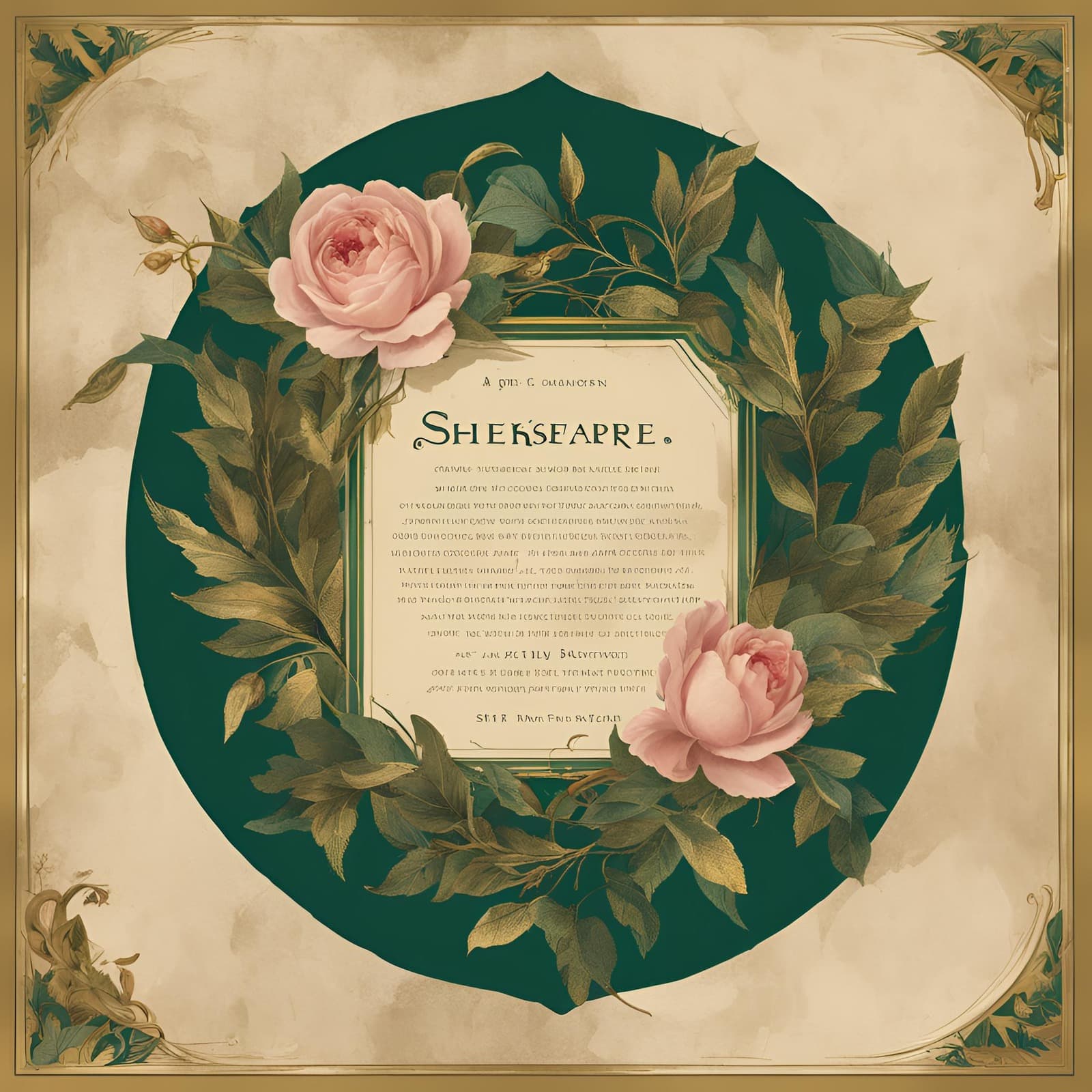莎士比亚十四行诗第46首 | 莎士比亚十四行诗
更新时间:1/19/2025, 12:32:28 PM

原文
Mine eye and heart are at a mortal war How to divide the conquest of thy sight; Mine eye my heart thy picture’s sight would bar, My heart mine eye the freedom of that right. My heart doth plead that thou in him dost lie— A closet never pierced with crystal eyes; But the defendant doth that plea deny, And says in him thy fair appearance lies. To ‘cide this title is impaneled A quest of thoughts, all tenants to the heart; And by their verdict is determined The clear eye’s moiety, and the dear heart’s part: As thus—mine eye’s due is thy outward part, And my heart’s right thy inward love of heart.
译文
我的眼睛和心在拚命打仗,
争夺着怎样把你的容貌来分享;
眼睛不让心来观赏你的肖像,
心不让眼晴把它自由地观赏。
心这样辩护说,你早就在心的内部,
那密室,水晶眼可永远窥探不到,
但眼睛这被告不承认心的辩护,
分辩说,眼睛里才有你美丽的容貌。
于是,借住在心中的一群沉思,
都升做法官,来解决这一场吵架;
这些法官的判决判得切实,
亮眼跟柔心,各得权利如下:
我的眼睛享有你外表的仪态,
我的心呢,占有你内心的爱。
注释
诗人有一张爱友的肖像,诗人的眼睛和心就争吵着谁是它(相片)的主人:眼睛看得到它,心看不到它,但心可以不让眼睛看;心又说,爱友永远在心中;眼睛说,爱友的美影永远在眼中。于是诗人的思想就来审判——其实是仲裁——说,诗人的眼睛分得爱友的美,诗人的心分得爱友的爱。诗中充满了法律名词,但奇想的经营并没有失去真实的情感。这一首可与第24首对照读。——第五行至第八行:假定心和眼睛在法庭上打官司,心是原告,眼睛是被告。第六行:“那密室”指心。第八行:暗示瞳孔中反映着注视的对象。